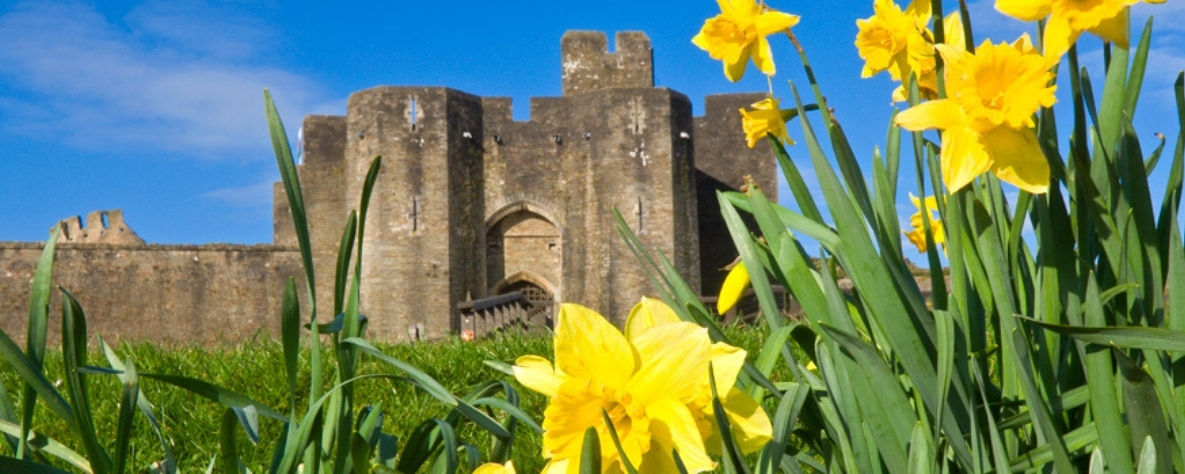
The importance of the Welsh language at Coleg Gwent
5 March 2021
The Welsh language and culture of Wales is important to us at Coleg Gwent and we’re proud of our Welsh identity and roots. So, this week, we’re celebrating Welsh Language Week, and we encourage all learners and staff – whether Welsh-speakers or not – to take this opportunity to better understand the importance of the Welsh language today.
4 Fun facts about the Welsh language
- According to the 2011 census, around 562,000 people (or one fifth of the population of Wales) speak Welsh, and figures are increasing. In the Annual Population Survey 2019-20, 28.3% of people were able to speak Welsh.
- Welsh is one of the oldest languages in Europe, emerging around 400 – 700 AD. It’s believed to be approximately 4,000 years old.
- Welsh isn’t only spoken in Wales – it is also spoken in Patagonia in South America.
- The Mabinogion is a famous collection of traditional Welsh stories and legends that’s over 1000 years old!
The Welsh language at Coleg Gwent
Thanks to the rich history of the Welsh language, it is a valuable skill not just now but for the future too. It is highly sought-after by employers in Wales, with increasing numbers of job roles asking for knowledge and competence in the Welsh language. We recognise this at Coleg Gwent, so we assist our learners and staff to learn the Welsh language or study and teach through the medium of Welsh, to gain or improve their skills and employability.
At Coleg Gwent, facilitating a positive learner-led Welsh support network is important to us. So, we make every effort to embed the Welsh language in our learners’ programs by ensuring that we provide both academic and extracurricular provision through the medium of Welsh. To deliver this, we have a Welsh Buddy scheme in partnership with the Coleg Cymraeg Cenedlaethol, which allows learners to promote, encourage and facilitate Welsh medium opportunities across the college. We also deliver Welsh courses for adults in partnership with the Learn Welsh Gwent programme.
Discover why our Welsh buddies are so passionate about the Welsh language
Welsh Buddy, Kate Atwell from Newport, is studying A Levels in Biology, Chemistry and Psychology at Torfaen Learning Zone. Both Kate and her sister are fluent Welsh speakers, regularly using the language to converse at home and with friends. We asked Kate about her thoughts on the Welsh language:
What does being a Welsh Ambassador mean to you?
“I feel very grateful to have the opportunity to be a Welsh buddy. I’ve had the chance to talk with many well-known Welsh stars, such as Ifan Pritchard from Gwilym and social media influencer Mikey Denman. Being a Welsh buddy has allowed me to meet new people and collaborate with those who I share similar interests with. It’s also allowed me to practice my Welsh since at home I don’t get as many chances as I would like to use the language. I value this role a lot and with every task I complete I gain a sense of accomplishment, and appreciation from my peers.”
Why did you want to play a part in promoting the Welsh language at college?
“I’m very proud that I can promote and encourage the use of Welsh around college. Having been in Welsh education my whole life, I’m aware of how being bilingual can better your opportunities. I wanted to share some of these benefits with other students. I also wanted to show others that learning Welsh doesn’t have to be difficult or unenjoyable. For Dydd Miwsig Cymru, I created a playlist full of my favourite Welsh songs to encourage students and staff to celebrate the occasion. I hoped by doing this, more people would be encouraged to consume Welsh media as this is a fun way to pick up the lingo.”
Where would you like to see the Welsh language going in the future?
“I hope to see more people using the Welsh language in the future, whether that be in the workplace or social settings. The Welsh Government aims to have 1 million Welsh speakers in Wales by 2050. I think this is a brilliant idea, but more should be done to encourage the use of the language. In my opinion, more funding should be given to improving Welsh education, as this will allow the language to reach younger generations. I also believe no matter how good or bad you think your Welsh is, everyone should feel proud that they understand the language. Even if you’re not fluent you should push yourself to engage in Welsh conversation. From my perspective, engaging in conversation in Welsh is more important than trying to get the mutations right!”
Here’s what our other Welsh Buddies have to say…
So, if you’re passionate about the Welsh language too, help us to promote it by becoming a Welsh Ambassador at Coleg Gwent in September – contact us to find out how. Or if you’re keen to learn Welsh or improve your existing skills, find out more about learning the language and studying in Welsh or bilingually here.
